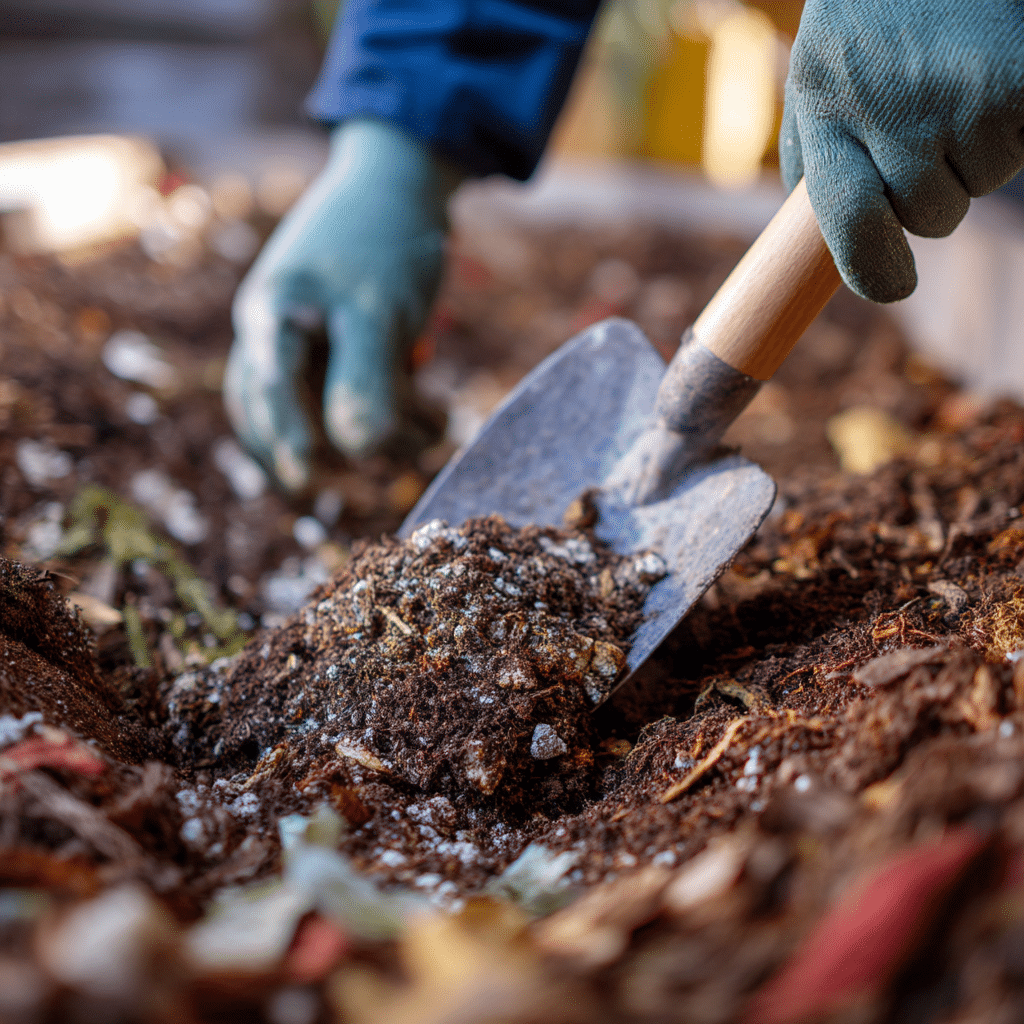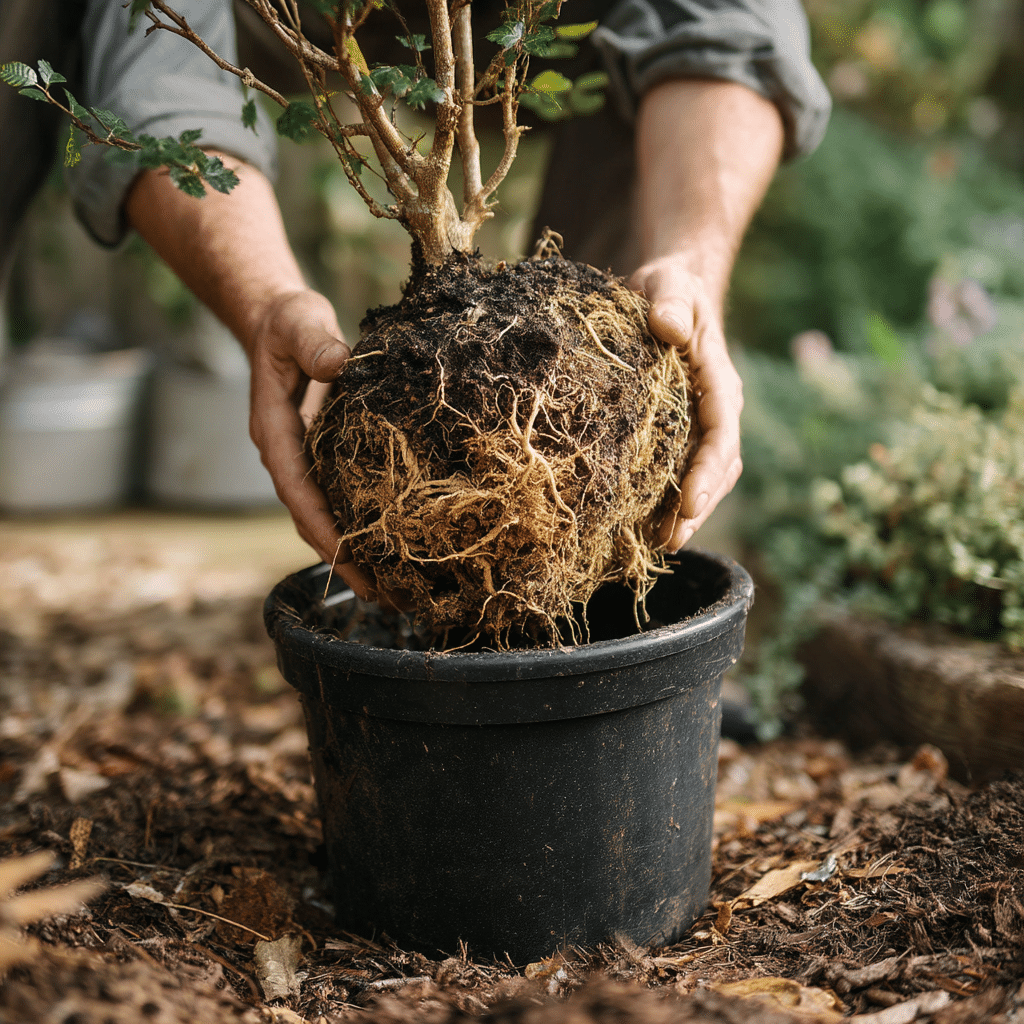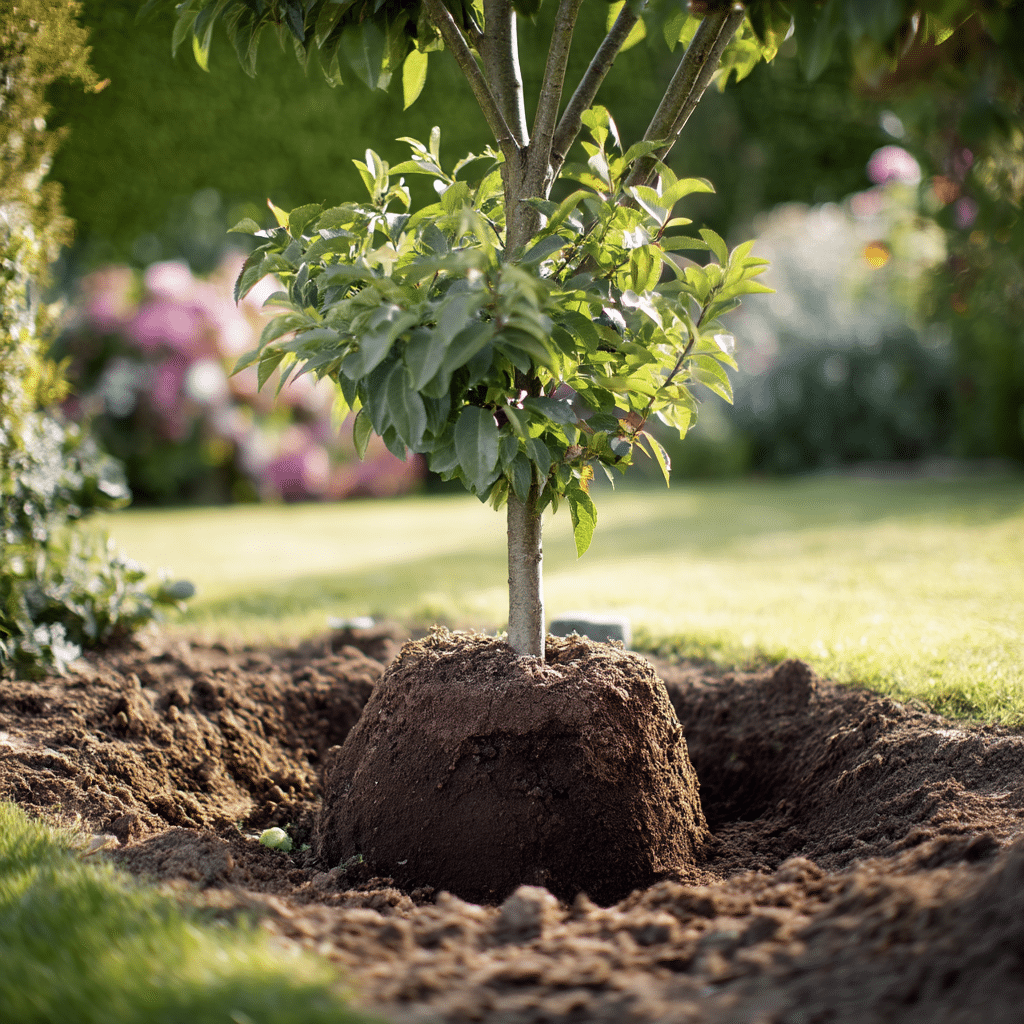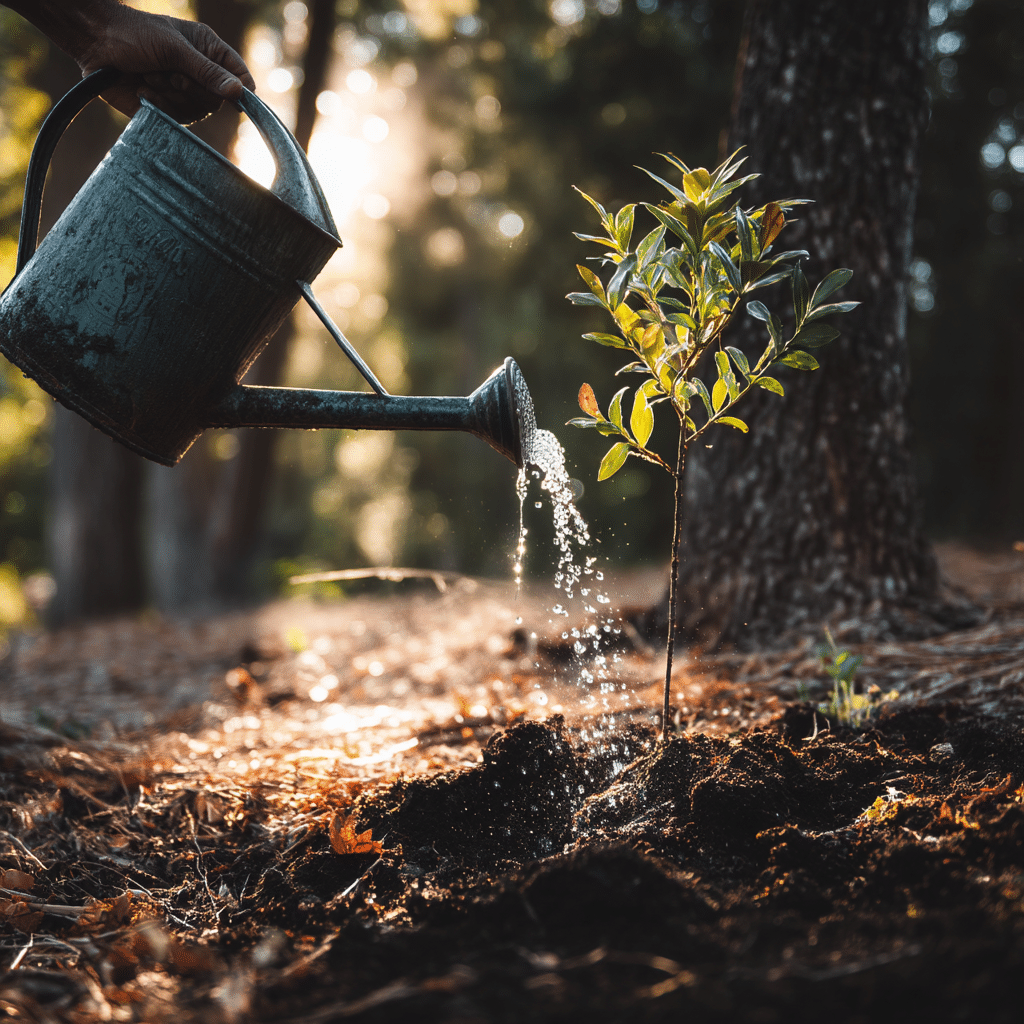Planting a tree is one of the most rewarding things you can do for your home, your community, and the planet. Whether you’re filling an empty corner of your backyard or helping green a neighborhood park, knowing how to plant a tree the right way ensures it thrives for decades to come.
While it might seem like a job for landscapers or seasoned gardeners, it’s actually simple and doable for anyone. With just a few basic tools, the right technique, and a little time, you can give a new tree the best possible start in life.
Here are six straightforward steps that show you exactly how to plant a tree—from digging the hole to that all-important first watering.
Table of Contents
Step 1: Soak the Tree Before You Plant
Before you even touch a shovel, give your tree’s root ball a good soak.
If the roots are dry, they may struggle to absorb moisture from the surrounding soil after planting. Submerge the root ball in a bucket of water or gently hose it down until it’s fully saturated. If available, adding a bit of liquid seaweed solution to the water can help reduce transplant shock and stimulate early root development.
Quick Tip: Soaking the tree while you prepare the planting hole saves time and ensures it’s fully hydrated.
Step 2: Dig a Deep, Roomy Hole
The quality of your hole is just as important as the quality of your tree.
Dig a hole that’s at least twice the width and slightly deeper than the root ball. This gives the roots space to expand and helps the tree settle into its new home without strain. Loosen the soil at the base of the hole to improve drainage and root penetration.
For compacted or clay soils, take extra care to break up the bottom of the hole and consider improving the soil before planting (see next step).
Step 3: Improve Your Soil Before Planting

Good soil gives your tree the nutrients, water, and structure it needs to grow strong.
- In clay soils, add gypsum to break up dense particles and improve drainage.
- In sandy soils, mix in well-aged compost to help the soil retain moisture.
- For all soil types, a handful of organic fertilizer like blood and bone or a slow-release mix can help jumpstart growth.
Avoid synthetic fertilizers at this stage—they can be too strong for young roots. Stick with natural, slow-acting amendments to gently nourish your new tree.
Step 4: Gently Remove the Tree from Its Container
Now it’s time to decant—or remove—the tree from its pot.
Handle with care. Try to keep the root ball intact to minimize disturbance. If the plant is root bound (you’ll see thick roots circling the inside of the pot), gently tease apart the bottom roots to encourage outward growth.
Be careful not to break healthy root systems unnecessarily. The less shock your tree experiences during transplant, the better.
Step 5: Plant the Tree with Care

Lower the tree into the hole so that the top of the root ball is just level with or slightly above the surrounding soil. Backfill the hole with the soil you removed earlier, pressing gently but firmly around the base.
Pro Tip: Form a shallow watering well around the base of the tree. This small dip helps rain or irrigation water funnel directly toward the roots instead of running off.
Check the tree’s posture before finishing—make sure it’s standing straight, not leaning, and centered in the hole.
Step 6: Water Deeply and Thoroughly
Finish strong by giving your tree a deep, slow watering.
This does more than just hydrate. Watering after planting helps settle the soil around the roots, removing air pockets and ensuring better contact with the soil.
If you planted in dry conditions, you may need to water a few more times over the first week. Keep the soil moist—but not soggy—for the first few weeks as the tree acclimates.
In warm or windy weather, consider mulching with straw, bark, or compost to help retain moisture and suppress weeds.
Why Planting a Tree Matters

Still wondering if it’s worth the effort? Here’s what a single tree can do for your space—and the planet.
Trees Help Keep Your Home Cooler
Planting trees near your home can reduce indoor temperatures naturally by blocking sunlight and offering shade. This not only makes your home more comfortable in the summer, but it also cuts down on your use of air conditioning—saving energy and lowering bills.
According to research, just three well-placed trees can reduce energy use by up to 30%.
Trees Are Natural Climate Champions
Trees absorb carbon dioxide and release clean oxygen through photosynthesis. Over its lifetime, a single tree can offset hundreds of kilograms of carbon—helping to reduce the impact of climate change.
In fact, planting just five trees can offset nearly one tonne of carbon dioxide.
Trees Improve Wellbeing and Mental Health
Time spent around trees and greenery reduces stress, boosts mood, and improves focus. By planting a tree in your yard, you’re not just adding beauty—you’re creating a peaceful, grounding place for your family and friends to enjoy.
Extra Tips to Help Your Tree Thrive
- Mulch generously to retain moisture and insulate roots
- Use a tree guard to protect young trunks from animals or harsh weather
- Stake only if needed (i.e., in windy areas) and remove after 6–12 months
- Weed regularly around the base to reduce competition for nutrients
- Avoid overwatering—roots need oxygen as well as water
Planting a tree isn’t just an act of gardening—it’s a long-term investment in your environment, your home, and future generations. With just six simple steps, you can set your tree up for a healthy, productive life.
So grab a shovel, pick your spot, and plant with purpose. The world needs more trees—and it starts with you.


